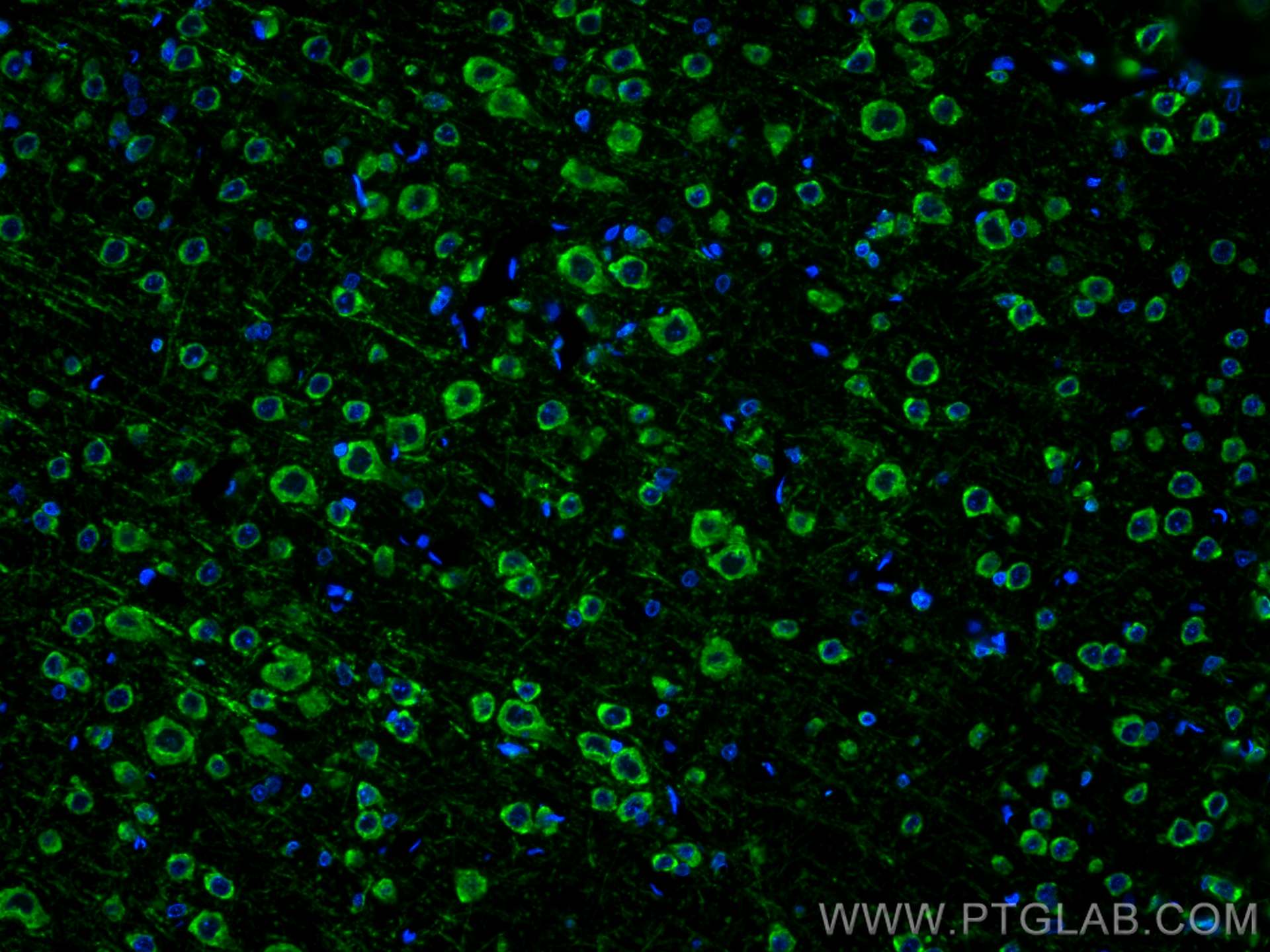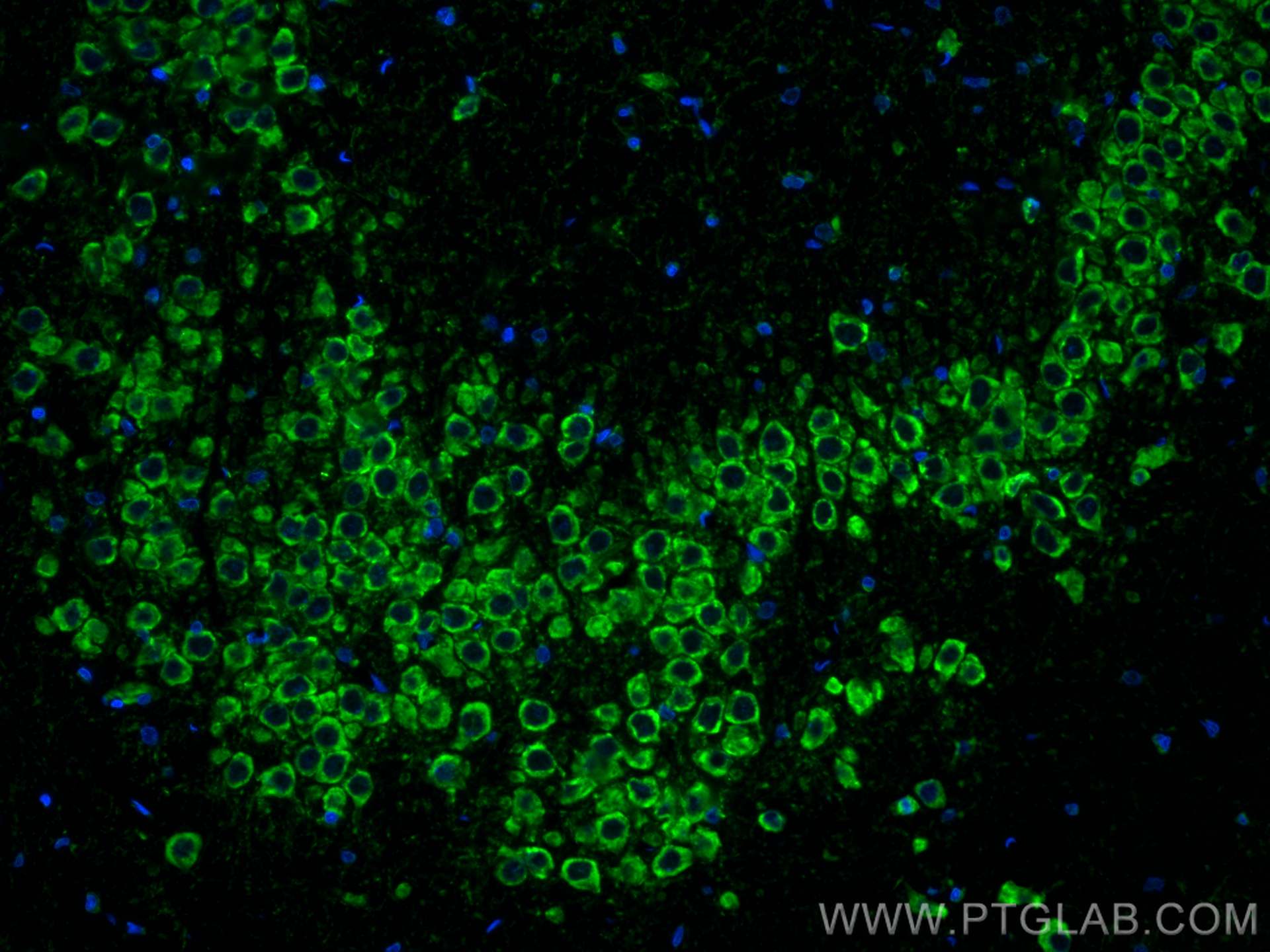验证数据展示
经过测试的应用
| Positive IF-P detected in | rat brain tissue |
推荐稀释比
| 应用 | 推荐稀释比 |
|---|---|
| Immunofluorescence (IF)-P | IF-P : 1:50-1:500 |
| It is recommended that this reagent should be titrated in each testing system to obtain optimal results. | |
| Sample-dependent, Check data in validation data gallery. | |
产品信息
CL488-68316 targets Ataxin 2 in IF-P applications and shows reactivity with Human, Mouse, Rat samples.
| 经测试应用 | IF-P Application Description |
| 经测试反应性 | Human, Mouse, Rat |
| 免疫原 | Ataxin 2 fusion protein Ag17402 种属同源性预测 |
| 宿主/亚型 | Mouse / IgM |
| 抗体类别 | Monoclonal |
| 产品类型 | Antibody |
| 全称 | ataxin 2 |
| 别名 | ataxin 2, ATX2, ATXN2, FLJ46772, SCA2, TNRC13 |
| 计算分子量 | 1313 aa, 140 kDa |
| 观测分子量 | 140-150 kDa |
| GenBank蛋白编号 | BC114546 |
| 基因名称 | ATXN2 |
| Gene ID (NCBI) | 6311 |
| RRID | AB_3084472 |
| 偶联类型 | CoraLite® Plus 488 Fluorescent Dye |
| 最大激发/发射波长 | 493 nm / 522 nm |
| 形式 | Liquid |
| 纯化方式 | Caprylic acid/ammonium sulfate precipitation |
| UNIPROT ID | Q99700 |
| 储存缓冲液 | PBS with 50% glycerol, 0.05% Proclin300, 0.5% BSA , pH 7.3 |
| 储存条件 | Store at -20°C. Avoid exposure to light. Stable for one year after shipment. Aliquoting is unnecessary for -20oC storage. |
背景介绍
ATXN2 contains a repeat structure with 22 or 23 triplets coding for glutamine and the (CAG)8CAA(CAG)4CAA(CAG)8 sequence; expansion of this domain to a size ≥34 triplets with a pure CAG sequence primarily causes autosomal dominant SCA2 [PMID:18418684], while ATXN2 expansions with CAA interruptions were observed as the cause of Levo-dopa responsive Parkinson's disease [PMID:10668726]. ATXN2 expansions associated with ALS were reported to be interrupted by at least one CAA triplet [PMID:21537950]
实验方案
| Product Specific Protocols | |
|---|---|
| IF protocol for CL Plus 488 Ataxin 2 antibody CL488-68316 | Download protocol |
| Standard Protocols | |
|---|---|
| Click here to view our Standard Protocols |

